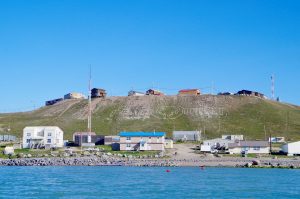The federal government released Budget 2021: A Recovery Plan for Jobs, Growth, and Resilience on April 19, 2021 (Budget 2021). It is a long document (over 700 pages). We were encouraged to see numerous measures included that address issues specific to Indigenous peoples. Most of these commitments are found in Chapter 8, entitled “Strong Indigenous Communities”.
In total, Budget 2021 proposes “more than $18 billion in investments to further narrow gaps between Indigenous and non-Indigenous peoples, support healthy, safe, and prosperous Indigenous communities, and advance meaningful reconciliation with First Nations, Inuit, and the Métis Nation.”
We have set out below a summary of the provisions in Budget 2021 that we think will be of most interest to you and your communities. For anyone interested, the full text of Budget 2021 can be found here.
Supporting the Mental Health of Those Most Affected by COVID-19
- $100 million over three years to the Public Health Agency of Canada to support projects for innovative mental health interventions for populations disproportionately impacted by COVID-19, including Indigenous people.
Extending the Canada Emergency Business Account (CEBA) and Related Programs
- The government proposes to extend the application deadline for support under the Regional Relief and Recovery Fund and the Indigenous Business Initiative until June 30, 2021.
- Up to $80 million in 2021-22, on a cash basis, for the Community Futures Network of Canada and regional development agencies, and to shift remaining funds under the Indigenous Business Initiative into 2021-22, to support an extended application deadline for the Regional Relief and Recovery Fund and Indigenous Business Initiative.
Establishing a Canada-Wide Learning and Child Care System
- The federal government will work with provincial, territorial, and Indigenous partners to build a Canada-wide, community-based system of quality childcare.
- New investments totaling up to $30 billion over the next five years, and $8.3 billion ongoing for Early Learning and Child Care and Indigenous Early Learning and Child Care.
- $2.5 billion over the next five years to be invested in Indigenous Early Learning and Child Care. This will include:
- $1.4 billion over five years, and $385 million ongoing, to ensure that more Indigenous families have access to high-quality programming.
- $515 million over five years, and $112 million ongoing, to support before and after-school care for First Nations children on reserve.
- $264 million over four years, starting in 2022-23, and $24 million ongoing, to repair and renovate existing Indigenous early learning and childcare centres, ensuring a safe and healthy environment for children and staff.
- $420 million over three years, starting in 2023-24, and $21 million ongoing, to build and maintain new centres in additional communities.
- The federal government is committed to tabling federal early learning and childcare legislation in fall 2021 – following consultations with stakeholders, provincial, territorial, and Indigenous partners – to enshrine the principles of a Canada-wide childcare system in law.
Investing in Clean Energy in Northern and Indigenous Communities
- $40.4 million over three years to support feasibility and planning of hydroelectricity and grid interconnection projects in the North.
- $36 million over three years, starting in 2021-22, through the Strategic Partnerships Initiative, to build capacity for local, economically sustainable clean energy projects in First Nations, Inuit and Métis communities and support economic development opportunities.
Strengthening Climate Resiliency
- $1.4 billion over 12 years to Infrastructure Canada to top up the Disaster Mitigation and Adaption Fund
- 10% of the total funding envelope would be dedicated to Indigenous recipients to benefit each distinctions-based group. Together, this would support projects that help small, rural, remote, norther, and Indigenous communities to adapt to climate change impacts.
Protecting Nature
- $2.3 billion over five years, with $100.5 million in remaining amortization, to Environment and Climate Change Canada, Parks Canada, and the Department of Fisheries and Oceans to, among other things:
- Conserve up to 1 million square kilometres more land and inland waters to achieve Canada’s 25 per cent protected area by 2025 target, including through national wildlife areas, and Indigenous Protected and Conserved Areas.
- Take action to prevent priority species at imminent risk of disappearing, including through partnerships with Indigenous peoples.
Sustainable Aquaculture Management
- $20 million over two years to Fisheries and Oceans Canada to expand engagement with the Province of British Columbia, Indigenous communities, industry, scientists, and other stakeholders, to inform the development of a responsible plan to transition from open net-pen salmon farming in coastal British Columbia waters by 2025.
Developing the Canada Water Agency
- $17.4 million over two years to Environment and Climate Change Canada to support work with the provinces, territories, Indigenous peoples, and key stakeholders on the scope of the agency’s mandate, including identifying opportunities to build and support more resilient water and irrigation infrastructure.
Supporting Indigenous Communities in the Fight Against COVID-19
- $1.2 billion in 2021-22 to continue supporting the COVID-19 response in Indigenous communities, as follows:
- $478.1 million to continue to support the ongoing public health response to COVID-19 in Indigenous communities, including support to hire nurses, help at-risk people to isolate, and distribute personal protective equipment; and
- $760.8 million for Indigenous Community Support Fund to help First Nations, Inuit and Métis Nation communities, and urban and off-reserve Indigenous organizations.
Improving Health Outcomes in Indigenous Communities
- $1.4 billion over five years, beginning in 2021-22, and $40.6 million ongoing, to maintain essential health care services for First Nations and Inuit, continue work to transform First Nations health systems, and respond to health impacts of climate change:
- $774.6 million to ensure continued high-quality care through the Non-insured Health Benefits Program;
- $354 million to increase the number of nurses and other medical professionals in remote and isolated First Nations communities;
- $107.1 million to continue efforts to transform how health care services are designed and delivered by First Nations communities;
- $125.2 million to continue to support First Nations communities’ reliable access to clean water and help ensure the safe delivery of health and social services on reserve; and
- $22.7 million to support First Nations and Inuit as they manage the health impacts of climate change, such as access to country food, impacts of extreme weather events, and mental health impacts of climate change on youth.

Distinctions-Based Mental Wellness Strategy
- $597.6 million over three years for a distinctions-based mental health and wellness strategy with First Nations, Inuit, and the Métis Nation.
Supporting Indigenous Children and Families
- $1 billion over five years, starting in 2021-22, with $118.7 million ongoing to increase funding under the First Nations Child and Family Services Program. The proposed funding would:
- Provide increased support to First Nations communities not served by a delegated First Nation agency for prevention activities to help First Nations children and families stay together, within their communities through the Community Well-being and Jurisdiction Initiative;
- Continue to implement orders from the Canadian Human Rights Tribunal; and
- Permanently ensure that First Nations youth who reach the age of majority receive the supports that they need, for up to two additional years, to successfully transition to independence.
- $73.6 million over four years, to support the implementation of the Act Respecting First Nations, Inuit and Métis Children, Youth, and Families.
Supporting Indigenous Post-Secondary Education During COVID-19
- $150.6 million over two years to support Indigenous students through the Post-Secondary Student Support Program and the Inuit and Métis Nation Post-Secondary Education Strategies.
- $26.4 million, in 2021-22, through the Post-Secondary Partnerships Program and the Inuit and Métis Nation Post-Secondary Education Strategies to support Indigenous post-secondary institutions during COVID-19.
On-reserve Income Assistance
- $618.4 million over two years, while work continues on making the program more responsive to the needs of individuals and families. This includes:
- $540 million to continue to address basic needs and increased program demand, including as a result of COVID-19; and
- $78.4 million to continue providing case management and support to help people find work.
Indigenous Infrastructure
- $6 billion over five years, starting in 2021-22, with $388.8 million ongoing, to support infrastructure in Indigenous communities. This includes:
- $4.3 billion for the Indigenous Community Infrastructure Fund, a distinctions-based fund to support immediate demands, as prioritized by Indigenous partners, with shovel-ready infrastructure projects; and
- $1.7 billion, with $388.9 million ongoing, to cover the operations and maintenance costs of community infrastructure in First Nations communities on reserve.
Supporting Indigenous Economies
- $117 million to renew the Indigenous Community Business Fund.
- $33.4 million to support First Nations Finance Authority pooled borrowing regime as follows:
- $32.5 million to establish a First Nations Finance Authority Emergency Fund to provide repayable financial support for borrowing members encountering difficulties due to COVID-19 or future widespread economic shocks; and
- $925,000 to support the First Nations Finance Authority launch of the Commercial Paper Program that will lower interest rates for First Nation borrowers so they can secure more manageable funding.
Support for Indigenous Entrepreneurs
- $42 million to expand the Aboriginal Entrepreneurship Program, to directly support Indigenous-led businesses and help Indigenous communities generate wealth by improving access to capital and business opportunities.
- $2.4 million to the Indigenous Tourism Association of Canada, to help the Indigenous tourism industry rebuild and recover from the impacts of COVID-19.
- $22 million to support the National Aboriginal Capital Corporations Association’s (NACAA) Indigenous Women’s Entrepreneurship Initiative to increase the number of Indigenous women entrepreneurs.
Securing Capital for Community Investments
- Government of Canada will amend legislation and regulations to expand the types of revenues that First Nations may use to support borrowing from the First Nations Finance Authority, specifically to include revenues from the First Nations Goods and Services Tax and the First Nations Sales Tax.
Redesigning the Additions to Reserve Policy
- $43 million over three years, starting in 2021-22, to work with Indigenous partners and other stakeholders to redesign the federal Additions to Reserve policy and to accelerate work on existing requests from First Nations across the country.
Responding to the Tragedy of Missing and Murdered Indigenous Women and Girls
- $2.2 billion over five years, beginning in 2021-22, and $160.9 million ongoing, to continue work to address the socio-economic root causes of violence and to help build a safer, stronger, and more inclusive society.
Culture
- $275 million over five years, and $2 million ongoing to Heritage Canada to support efforts of Indigenous peoples to reclaim, revitalize and strengthen Indigenous languages.
- $14.9 million over four years to support the preservation of Indigenous heritage through Library and Archives Canada.
- $108.8 million over two years to re-establish and revitalize Indigenous cultural spaces.
- $40.1 million over three years to Canadian Heritage to support the Indigenous Screen Office and ensure Indigenous peoples can tell their own stories and see themselves reflected on-screen.
- $14.3 million over five years, and $2.9 million ongoing, to ensure that Indigenous women and girls have access to meaningful sports activities through the Sport for Social Development in Indigenous Communities program.
Health and Wellness
- $126.7 million over three years to take action to foster health systems free from racism and discrimination where Indigenous peoples are respected and safe. This funding will support patient advocates, health system navigators, and cultural safety training for medical professionals.
- $12.5 million over five years, and $2.5 million ongoing, to support the well-being of families and survivors through project-based programming in collaboration with the National Family and Survivors Circle.

Human Security and Safety
- $861 million over five years, and $145 million ongoing, to support culturally responsive policing and community safety services in Indigenous communities. This includes:
- $43.7 million to co-develop a legislative framework for First Nations policing that recognizes First Nations policing as an essential service.
- $540.3 million over five years, and $126.8 million ongoing to support Indigenous communities currently served under First Nations Policing Program and expand the program to new Indigenous communities.
- $108.6 million to repair, renovate, and replace policing facilities in First Nation and Inuit communities.
- $64.6 million over five years, and $18.1 million ongoing, to enhance Indigenous-led crime prevention strategies and community safety services.
- $103.8 million for a new Pathways to Safe Indigenous Communities Initiative to support Indigenous communities to develop more holistic community-based safety and wellness models.
Justice
- $74.8 million over three years to improve access to justice for Indigenous people and support the development of an Indigenous justice strategy to address systemic discrimination and overrepresentation of Indigenous people in the justice system. This includes:
- $27.1 million to Justice Canada to help Indigenous families navigate the family justice system and access community-based family mediation services.
- $24.2 million to Justice Canada to support engagement with Indigenous communities on the development of legislation and initiatives that address systemic barriers in the criminal justice system, including collaboration on an Indigenous justice strategy.
- $23.5 million to the Public Prosecution Service of Canada to support victims of violence by increasing prosecutorial capacity in the territories.
Working with Partners
- $36.3 million over five years, and $8.6 million ongoing to Crown-Indigenous Relations and Northern Affairs Canada to enhance support for Indigenous women’s and 2SLGBTQQIA+ organizations, to ensure that the voices and perspectives of Indigenous women and 2SLGBTQQIA+ people are reflected in all aspects of decision-making that impacts their lives.
- $20.3 million over five years to work with Indigenous partners to ensure that appropriate monitoring mechanisms are in place to measure progress and to keep government accountable, now and in the future.
Implementation of Legislation on the United Nations Declaration on the Rights of Indigenous Peoples
- $31.5 million over two years to support the co-development of an Action Plan with Indigenous partners to implement this legislation and to achieve the objectives of the Declaration.
Escalating 10-Year Grant Funding
- $2.7 billion over 10 years to ensure that funding for core programs and services provided through the 10-year grants address key cost drivers. Escalation will be based on inflation and the population of each community, but a minimum of 2 per cent annual growth will be provided to ensure that First Nations within the grant receive stable and predictable funding.
Supporting Indigenous Governance and Capacity
- $104.8 million over two years to support the administrative capacity of First Nations governments and other organizations that deliver critical programs and services.
- $151.4 million over five years to provide wrap-around supports for First Nations with the greatest community development needs.
Advancing Specific Claims Settlements
- To provide timely payment of negotiated settlements of Specific Claims while work continues on co-developing program reforms, the government will replenish the Specific Claims Settlement Fund in 2022-23.
Commemorating the Legacy of Residential Schools
- $13.4 million over five years, with $2.4 million ongoing, to Canadian Heritage for events to commemorate the history and legacy of residential schools, and to honour survivors, their families, and communities, as well as to support celebrations and commemoration events during the proposed National Day for Truth and Reconciliation.
Support for Indigenous-led Data Strategies
- $73.5 million over three years to continue work towards the development and implementation of a First Nations Data Governance Strategy.
- $8 million over three years to support Inuit and Métis baseline data capacity and the development of distinctions-based Inuit and Métis Nation data strategies.
Engagement with Indigenous Peoples
- $50 million over five years, and $10 million ongoing, to renew and make permanent dedicated consultation and policy development funding.
Supporting Self-determination Through Tax Agreements
- The Government of Canada intends to engage with interested Indigenous governments and organizations on a framework for the negotiation of agreements that would enable interested Indigenous governments to implement a fuel, alcohol, tobacco, and cannabis sales tax within their reserve or settlement lands.
National Action Plan to End Gender-Based Violence
- $55 million over five years for the Department of Women and Gender Equality to bolster the capacity of Indigenous women and 2SLGBTQQIA+ organizations to provide gender-based violence prevention programming aimed at addressing the root causes of violence against Indigenous women, girls, and 2SLGBTQQIA+ people.
Diverting Youth Away from the Justice System
- $216.4 million over five years, and $43.3 million ongoing for the Youth Justice Services Funding Program to increase funding to the provinces and territories in support of diversion programming and to help reduce the overrepresentation of Indigenous peoples, Black Canadians, and other racialized groups in the youth justice system.
Supporting Work to Address Systemic Racism in Public Safety Institutions
$75 million over five years, and $13.5 million ongoing, to the Royal Canadian Mounted Police to take action, with steps to combat systemic racism through: reforming recruitment and training processes; the collection, analysis, and reporting of race-based data; more rapidly evaluating the impact of policing activities on certain communities; and improving community engagement and consultation with Black, Indigenous, and racialized communities.

